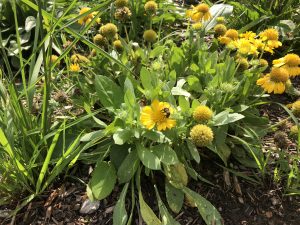
BY TAYLOR LOGAN
The bee population has been on a dramatic decline for the past 10 years.
The rise of agriculture has caused the growth of pesticides, climate change, and a mysterious disappearance of hundreds of thousands of bees and other pollinators. This poses a threat to not only the eco-system, but farming as we know it today.
Sheridan College is putting an effort into saving not only the bees, but the other pollinators responsible for the food we have today.
Sheridan’s Office of Sustainability is responsible for creating Mission Zero, a bio-diverse initiative for creating a zero-waste college. Mission Zero is promoting bee workshops, held in G102, called Give Bees a Chance: Pollinator Conservation. The first workshop will be held at Trafalgar Campus Sept. 27. The second workshop will be held on Oct. 11.
Wai Chu Cheng, coordinator of Mission Zero, believes that the workshop could inform Sheridan students on how to help conserve and protect pollinators. “This is a very hands-on lecture,” Cheng said. “It’s two hours, and students will learn about native plants, and how the medicine gardens right here on campus help the pollinators as well.”
Students attending the workshop also will work together to create a bee habitat right here on campus.
But Sheridan isn’t the only school doing their part to save the bees. Washington State University, collaborating with Fungi Perfecti, has started an initiative called Bee Friendly.
Bee Friendly believes that the majority of bee disappearances are actually caused by a mite called varroa that attaches to the bees and passes on diseases such as deformed wing virus. These diseases start in one colony and can quickly spread to an entire bee farm, wiping out millions of bees in months alone. The varroa mite poses the most immediate danger to the bee industry.
Melissa Bean, director of development of Bee Friendly, believes that the solution lies in mushrooms. “The research this effort supports are multi-faceted. It supports work on decreasing viruses in honey bees using a fungal extract.” Bean said. “In addition to working on boosting the immune system of bees to fight viruses, we are working on developing a strain of fungus to put into the hive that has the potential to kill the varroa mite without hurting the honey bee.”
The Bee Friendly initiative began in 2015. Started by Paul Stamets, the founder of Fungi Perfecti. Stamets believes in a world where chemical solutions aren’t the answer. “Honey bees are vital to our food supply. This effort has a tremendous impact on the food we eat. Having natural remedies and not using chemical treatments to address this effort is very important,” said Stamets.

Saving bees and other pollinators is something that everyone can contribute to. From donating to initiatives like Bee Friendly, or Give Bees a Chance, to planting a garden full of bee friendly plants, like the medicine gardens at Sheridan.
“Saving the bees, and the worlds agriculture is a collaborative effort.” Bean said, “It is important for people to understand that they can make a difference.”
